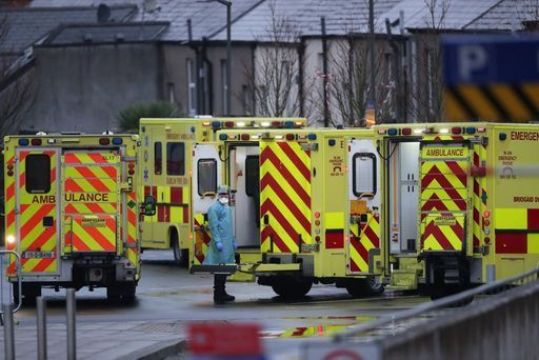The number of patients waiting 12 months or longer for hospital treatment is now double the number seen prior to the Covid-19 pandemic, new figures show.
The latest figures from the National Treatment Purchase Fund (NTPF) show a record 20,813 patients are now waiting over a year for hospital inpatient or day case care — representing an increase of 11,103 people or 114 per cent in the past year.
In response to the figures, the Irish Hospital Consultants Association (IHCA) has called for the Government to urgently address consultant shortages, which it says are among the “root causes” of the record waiting lists.
It also warned that waiting lists will deteriorate further in the short-term, due to the ongoing pandemic.
There has been a 255-fold rise in the number of patients waiting over 15 months for inpatient or day case treatment since 2014 — from 56 patients in January 2014, to 14,334 seven years later in January 2021.
When it comes to outpatient appointments, there are 98,304 or 56 per cent more people waiting longer than a year for an appointment, compared to this time last year.
Vacant posts
In total, some 862,720 people are currently on various NTPF waiting lists, representing an increase of 11 per cent since January 2020.
IHCA President Prof Alan Irvine said: “Yet again, these waiting time figures drive home the devastating impact not just of Covid-19 on the provision of care to patients, but of the persistent underinvestment in hospital infrastructure, bed capacity and other facilities in the past decade.”

Prof Irvine said there were over 700 permanent consultant posts vacant in acute Irish hospitals, making them “very poorly positioned” to provide timely care to patients.
He said that record funding levels for healthcare in 2021 must be channelled “effectively and speedily” towards recruiting additional consultants with supporting teams and infrastructure, which will “make the most difference for patients”.
“Nearly 70 per cent of members who responded to a recent IHCA survey confirmed that the low number of consultants available to deliver care will have a moderate or severe adverse impact on their capacity to deal with the backlog in non-Covid care,” Prof Irvine said.
“No amount of investment in hospital services will reduce waiting lists unless we recruit and retain the necessary number of hospital consultants to deliver timely care.”







